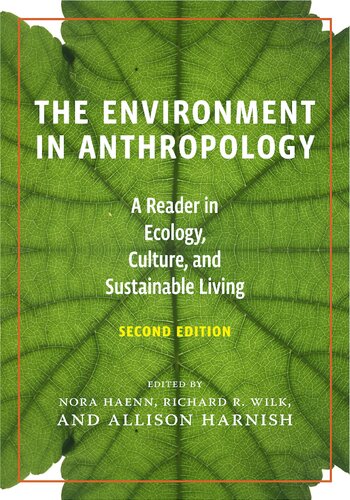

Most ebook files are in PDF format, so you can easily read them using various software such as Foxit Reader or directly on the Google Chrome browser.
Some ebook files are released by publishers in other formats such as .awz, .mobi, .epub, .fb2, etc. You may need to install specific software to read these formats on mobile/PC, such as Calibre.
Please read the tutorial at this link. https://ebooknice.com/page/post?id=faq
We offer FREE conversion to the popular formats you request; however, this may take some time. Therefore, right after payment, please email us, and we will try to provide the service as quickly as possible.
For some exceptional file formats or broken links (if any), please refrain from opening any disputes. Instead, email us first, and we will try to assist within a maximum of 6 hours.
EbookNice Team

Status:
Available0.0
0 reviewsThe Environment in Anthropology presents ecology and current environmental studies from an anthropological point of view. From the classics to the most current scholarship, this text connects the theory and practice in environment and anthropology, providing readers with a strong intellectual foundation as well as offering practical tools for solving environmental problems.
Haenn, Wilk, and Harnish pose the most urgent questions of environmental protection: How are environmental problems mediated by cultural values? What are the environmental effects of urbanization? When do environmentalists’ goals and actions conflict with those of indigenous peoples? How can we assess the impact of “environmentally correct” businesses? They also cover the fundamental topics of population growth, large scale development, biodiversity conservation, sustainable environmental management, indigenous groups, consumption, and globalization.
This revised edition addresses new topics such as water, toxic waste, neoliberalism, environmental history, environmental activism, and REDD (Reducing Emissions from Deforestation and Forest Degradation), and it situates anthropology in the multi-disciplinary field of environmental research. It also offers readers a guide for developing their own plan for environmental action. This volume offers an introduction to the breadth of ecological and environmental anthropology as well as to its historical trends and current developments. Balancing landmark essays with cutting-edge scholarship, bridging theory and practice, and offering suggestions for further reading and new directions for research, The Environment in Anthropology continues to provide the ideal introduction to a burgeoning field.